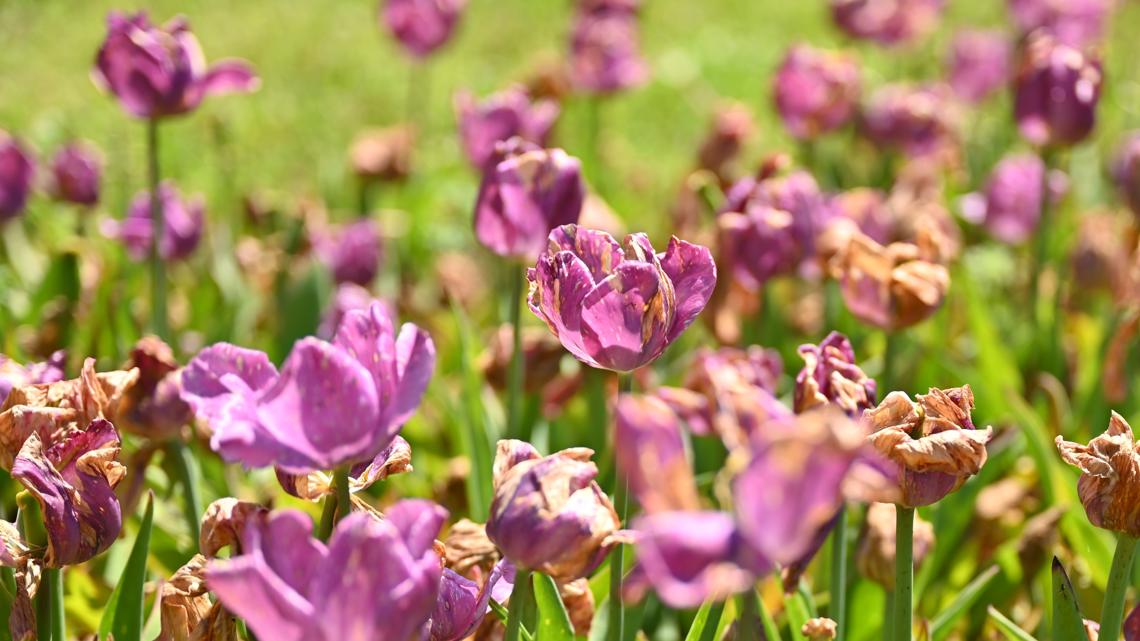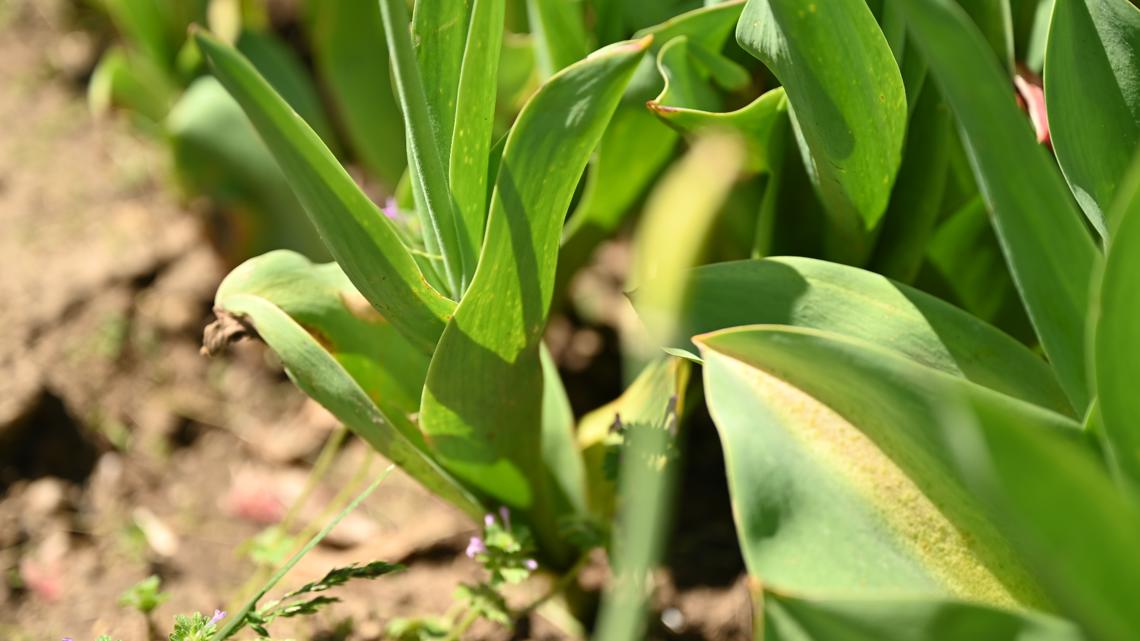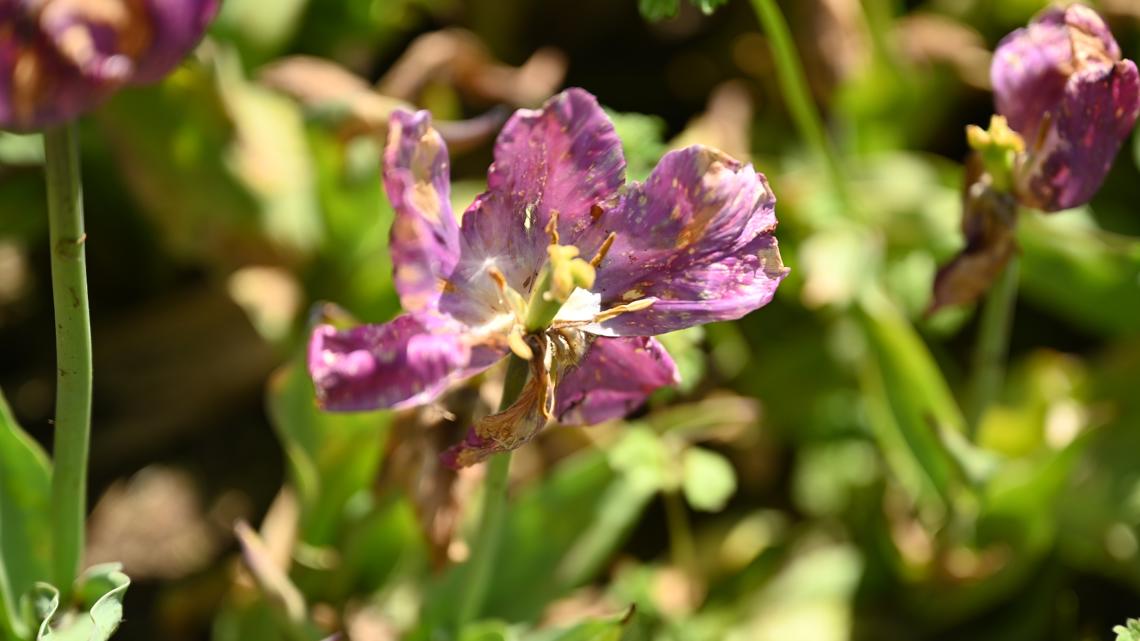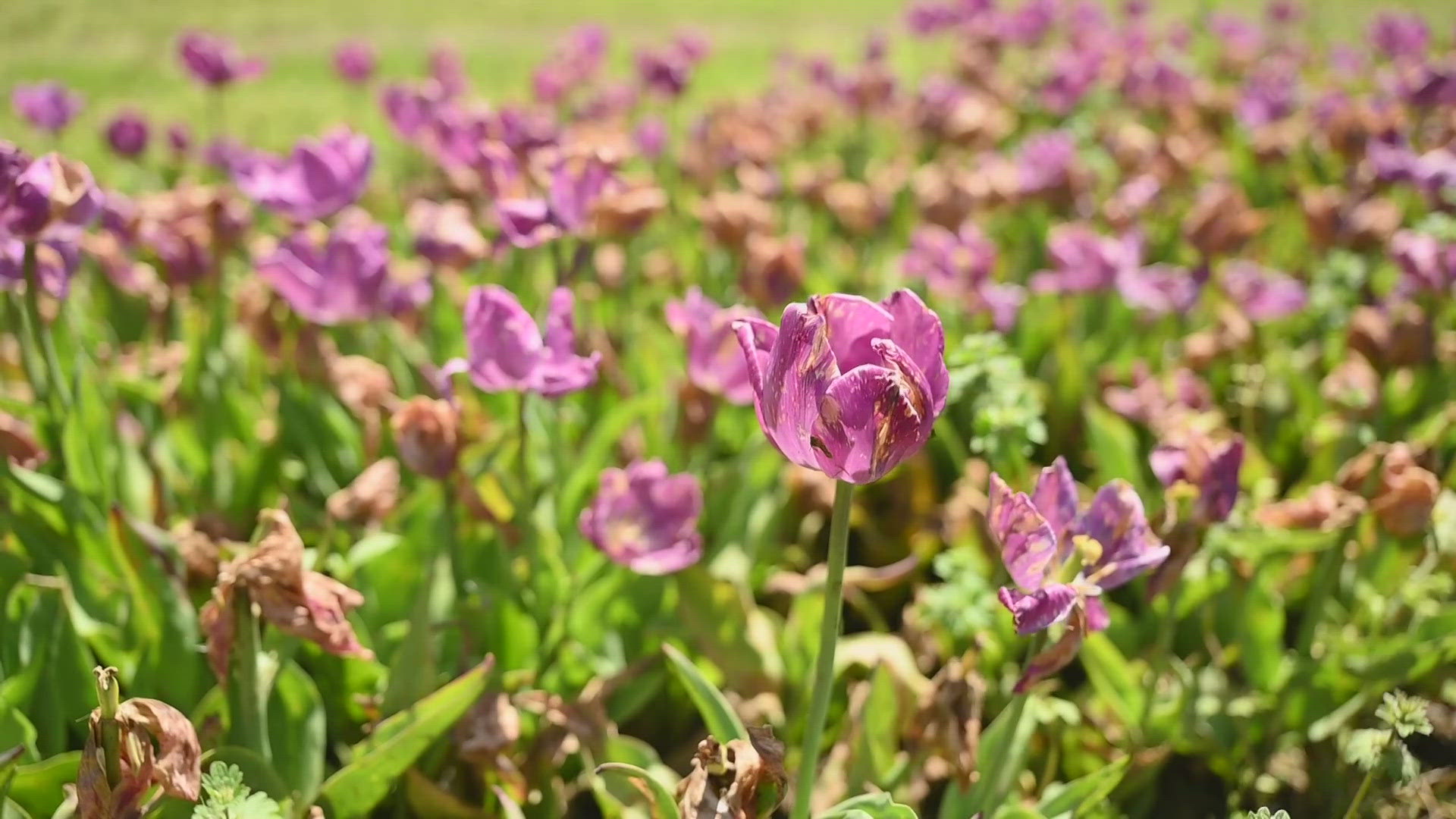PENDLETON, Ind. — This spring, Tracy Lawyer lost thousands of tulips.
"I lost all of these," she said, pointing to a large flower bed. "I didn't sell any of these."
That meant her business, Lick Creek Flower Company, lost thousands of dollars.
"I can't sell customers tulips that don't look really good," Lawyer said.
That is because spots developed on the tulips' petals and leaves. She estimates 60% of her flowers were affected by the problem.
"By the time I'd noticed it, it had already spread about three quarters of the way down (the garden bed)," Lawyer said.
To prevent this type of loss from happening again, Lawyer mailed a tulip sample, from bulb to bloom, to Purdue University's Plant and Pest Diagnostic Laboratory. The goal: to get a diagnosis and treatment plan.


It is a service Lawyer has used since before the tulip issue. When her snapdragons were having problems, the lab suggested she switch her plastic mulch color from black to white. It's advice she implemented moving forward.
Now, she's hoping they can do the same for her tulips.
"This is the first time I've ever had a problem like this," Lawyer said. "So that's really why I need Purdue to help me diagnose it, is so that I can ward it off for next year."
Dr. Tom Creswell has his Ph.D. in plant pathology and is one of Purdue's plant doctors.
"First, we're going to look at the symptoms that the plant's producing," Creswell said.


On Lawyer's tulip sample, symptoms includes this brown color and a fuzz associated with fungi.
"This problem is called 'tulip fire.' It's a disease caused by the fungus Botrytis," Creswell explained. "It's not very common in tulips. When it does hit, it can cause quite a bit of damage."
Since Lawyer is a commercial farmer, Creswell will suggest a fungicide.
"It's a matter of protecting the tissue in advance before the fungus lands," Creswell said.


If the tulips were in a personal garden, Creswell would suggest spacing out the flowers further to create a drier environment.
The price of getting your problematic plants checked out is $11 if you live in-state. Out-of-state, it jumps to $22.
"If we have to do additional tests, like this virus testing, that may add another $10 or $25," Creswell said.
But for people like Lawyer, it's money well spent, so she can try and fend off fungus next year.

